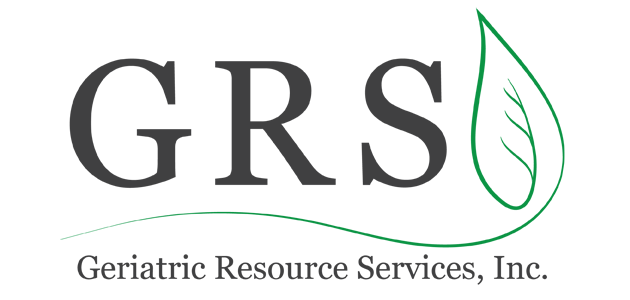Aging Well in the Upstate
Helpful tips for family caregivers
April/May 2020
“It’s always too early, until it’s too late.” This is how it feels when you bring up the subject of advance care planning. Take advantage of National Healthcare Decisions Day and encourage your loved one to talk with the doctor to share his or her wishes for end-of-life care. In a follow-up to our article last month about sleep apnea, we look at various remedies for this serious condition. Your relative’s health, and a partner’s quality of life, may depend on it. Last, we address techniques for dealing with the distress of a loved one’s hallucinations.
Doctors and advance directives
 If your loved one and family have had the conversation about end-of-life wishes, kudos to you! In addition to writing down those wishes in an advance directive, your relative should also share them with his or her health care team.
If your loved one and family have had the conversation about end-of-life wishes, kudos to you! In addition to writing down those wishes in an advance directive, your relative should also share them with his or her health care team.
Even if your family member is in perfect health now, that could change at a moment’s notice. It’s important to have the conversation with the primary care doctor and any specialists while in relatively stable health. Not during a crisis!
Medicare will pay
Physicians are reimbursed for having this discussion. Doctors don’t typically raise the subject. But they do respond when a patient initiates.
Here are some tips:
- Scheduling. Make a special appointment for this conversation. Tell the staff that you want to discuss end-of-life decisions. That helps the doctor prepare.
- Philosophy. Before the appointment, have your relative consider: Does he or she lean toward a “do everything” approach or prefer “no heroics, keep me comfortable, let nature take its course”? Anything he or she wants to be sure does NOT happen? Any religious beliefs or personal experiences—events with friends or family—that guide those wishes?
- Advance directive. If your relative has completed the form, make sure the doctor has a copy and it is included in the medical record.
Specific procedures
The doctor may inquire about specifics. This is done to complete a Physician Orders for Scope of Treatment, which concisely tells hospital and emergency personnel what they should or shouldn’t do. Does your loved one want resuscitation? Tube feeding? A ventilator? Ask about the pros and cons. What is the survival rate with each procedure? And what might quality of life be afterwards? (Broken ribs from CPR? Infections from a ventilator…?)
Your relative needs to have this discussion with the doctor—and the family—while still able to convey concerns and priorities. With end-of-life wishes, “It’s always too soon … until it’s too late.”
Return to topReturn to a good night's sleep
 If your older loved one snores loudly, he or she likely has sleep apnea: A collapsing of the airways while sleeping that results in mini-suffocations 5–30 times an hour.
If your older loved one snores loudly, he or she likely has sleep apnea: A collapsing of the airways while sleeping that results in mini-suffocations 5–30 times an hour.
Left untreated, this serious condition is a strong contributor to heart-related deaths, type 2 diabetes, dementia, depression, and car accidents.
It’s also a huge problem for any bed partners! Sleep apnea is important to address.
Lifestyle changes can help. Losing weight, quitting smoking, and treating allergies are key steps. Refraining from alcohol at night is also effective, because alcohol relaxes the throat muscles. Learning to sleep on one’s side is another strategy to reduce apnea episodes.
There are several possible treatments. Some require a doctor’s prescription. Not all treatments work for everyone.
- CPAP (continuous positive airway pressure). Through a strapped-on facial mask, a CPAP machine pushes air into the airways and down into the lungs. While a CPAP is the most reliable treatment, it admittedly takes some time to get accustomed to wearing the mask. Medicare covers the CPAP, based on the device’s recording of usage. If your relative does not use it for at least four hours a night, 70% of the nights in the first three months, Medicare will take it back.
- Dental device that thrusts the lower jaw forward. Worn only at night, this device opens the throat. It is easy to use, easy for traveling, and does not require electricity. Talk with the dentist. Note: Medicare will not pay for a dental device.
- Nasal plugs. Inserted into the nostrils, these devices create counterpressure in the airways, often enough to keep the airways open. Ask for a prescription.
- Nasal dilators. These over-the-counter devices can be as simple as a strip resembling a Band-Aid with a wire in it. Placed below the bridge of the nose, the wire causes the nostrils to flare, increasing airway capacity.
Hallucinations in later life
 “I don’t like that bear on my bed!”
“I don’t like that bear on my bed!”
A visual hallucination such as this can occur in the later stages of dementia or near the end of life.
Some people also have auditory hallucinations—hearing things that others don’t—or feel things that aren’t there, such as string in their mouth or ants on their arm.
These false perceptions are a misfiring of the brain. But they seem very real to the person experiencing them.
When to “join the story”
If the hallucination is not distressing to your loved one, don’t try to reason him or her out of it. Challenging what they perceive is likely to upset them. Instead, participate in their story. They might, for instance, see their mother in the room. You don’t want to lie and pretend you see her also. But you might say, “I remember the time she brought balloons for my birthday. She was so sweet.”
Is the person frightened or agitated?
If your loved one is distressed, validate their feelings: “I wouldn’t want a bear on my bed either.” Then reassure them that you are there to protect them. Touch your loved one’s arm or hand in a comforting way and suggest doing something together. The act of physical touch can help orient your relative to the present. Leaving the room together—for a cookie or to feed the cat, or some other simple activity—can also help him or her disengage.
Look for a cause
Check for pain or discomfort. Other possible culprits include a full bladder, hunger, thirst, or constipation. Keeping rooms well lit reduces the chance of your loved one misinterpreting shadows or noises. If your relative mistakes his or her own reflection in a mirror for an intruder, cover up mirrors.
Always talk with the doctor
Hallucinations can be brought on by an infection or be a side effect of medication.

